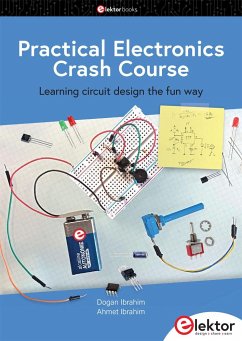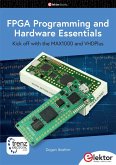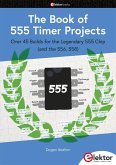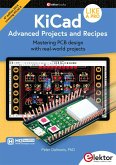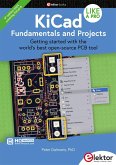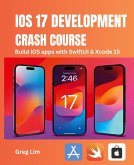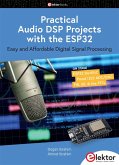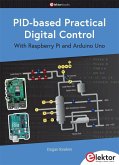Welcome to the world of electronics!
Getting started in electronics is not as difficult as you may think. Using this book, you will explore and learn the most important electrical and electronics engineering concepts in a fun way by doing various experiments and by simulating circuits. It will teach you electronics practically without getting into complex technical jargon and long calculations. As a result, you will be creating your own projects soon.
No prior knowledge of electronics is required, only some basic algebra is used in a few simple calculations. Many tested and working projects and simulations are presented to familiarise yourself with the construction of electronic circuits. Circuit simulation is introduced at an early stage to enable you to experiment with circuits easily without breaking anything.
You will learn:
The concepts of voltage, current, and powerAC and DCBasic lamp circuits with switchesPassive components: resistors, capacitors & inductorsRC & RCL circuitsElectromagnetismLoudspeakers, relays, buzzers, and transformersActive components: diodes & LEDs, bipolar transistors & MOSFETsTransistor-based switching circuitsOptocoupler circuitsAstable & monostable multivibratorsUsing the 555 timer ICThe operational amplifierDigital logicAdvanced examples: amplifiers, oscillators, filters, and sensorsTest and measurement toolsMicrocontrollers: Arduino UNO, ESP32, Raspberry Pi Pico, and Raspberry PiReading datasheets and best practices for selecting componentsEMC & EMI and norms & regulations
Getting started in electronics is not as difficult as you may think. Using this book, you will explore and learn the most important electrical and electronics engineering concepts in a fun way by doing various experiments and by simulating circuits. It will teach you electronics practically without getting into complex technical jargon and long calculations. As a result, you will be creating your own projects soon.
No prior knowledge of electronics is required, only some basic algebra is used in a few simple calculations. Many tested and working projects and simulations are presented to familiarise yourself with the construction of electronic circuits. Circuit simulation is introduced at an early stage to enable you to experiment with circuits easily without breaking anything.
You will learn:
The concepts of voltage, current, and powerAC and DCBasic lamp circuits with switchesPassive components: resistors, capacitors & inductorsRC & RCL circuitsElectromagnetismLoudspeakers, relays, buzzers, and transformersActive components: diodes & LEDs, bipolar transistors & MOSFETsTransistor-based switching circuitsOptocoupler circuitsAstable & monostable multivibratorsUsing the 555 timer ICThe operational amplifierDigital logicAdvanced examples: amplifiers, oscillators, filters, and sensorsTest and measurement toolsMicrocontrollers: Arduino UNO, ESP32, Raspberry Pi Pico, and Raspberry PiReading datasheets and best practices for selecting componentsEMC & EMI and norms & regulations

